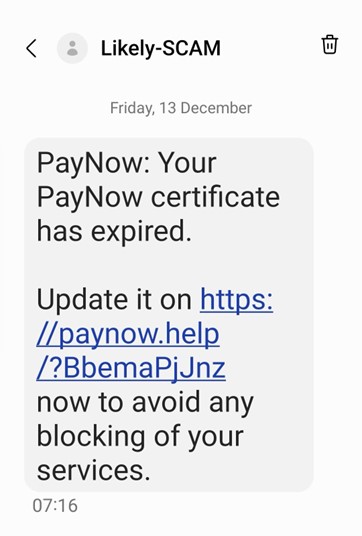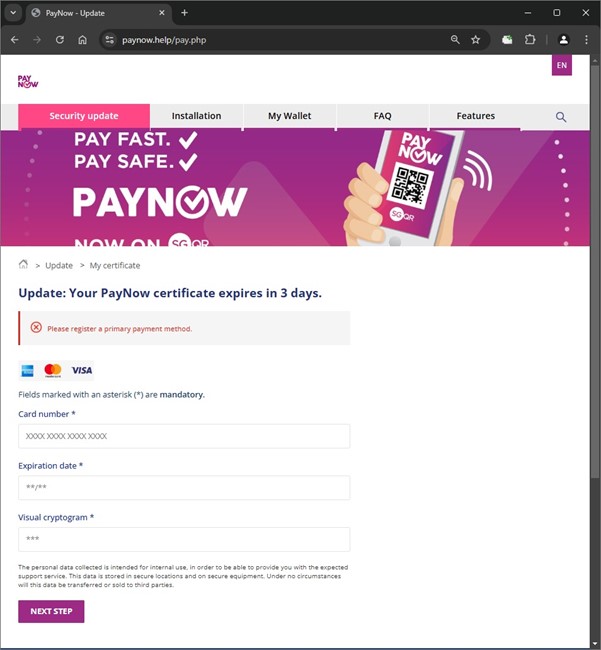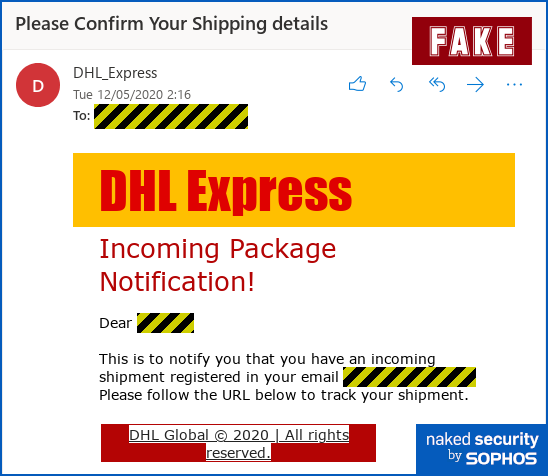Linda’s online store for fancy Japanese stationery was up and running. She was getting about 7 orders a day, and everything was running smoothly.
But among the steady flow of orders, a customer message came in. “Hi I already ordered and paid using credit card. But I overpaid by SGD70. Can you refund that amount to my PayNow?”
Seems innocent, right? After checking that the order did indeed exist, she happily refunded the extra money to the customer. She also packed the order and shipped it.
But a few days later, she receives a notification that the credit card was invalid because it was a stolen card.
That means, she never received any payment for the order, and she also sent “refund” money to the scammer, and she also shipped his product to the scammer. So, losses all around.
Merchants are Increasingly Vulnerable
Scams like these are on the rise. And while it’s common to see messages reminding buyers to be wary of scams, don’t forget that scams affect merchants too.
In fact, the Singapore Police Force (SPF) reporting a 10.8% increase in scam cases in 2024. And e-commerce scams made up almost a quarter of them.

Scammers love to target online sellers because the interaction is fully online, and merchants are willing to accept multiple methods of payments to attract customers.
So, scammers invent clever ways to exploit sellers, using a combination of tricks involving PayNow, credit cards, or even tricking you into installing malware.
PayNow is particularly tricky because it’s backed by banks and supported by government bodies, so many sellers and buyers feel safe using it to send money.
But this very trust is what scammers prey on. They count on sellers assuming every PayNow notification means the money really landed in their account. Unfortunately, that’s not always the case.
The tricks below can catch sellers off guard, but once you know what they look like, you’ll be able to avoid them.
SCAM 1: Fake PayNow Confirmation Screenshot
In this scam, the buyer will send you a screenshot that looks exactly like a PayNow payment confirmation.
The screenshot looks authentic, with all the right details, but it’s fake, and no real money has been sent to your account.
TO AVOID THIS: Always check your banking app to make sure the money has actually arrived in your account, before packing and shipping.
SCAM 2: “PayNow Certificate Expiring” Scam
This scam was reported by the Singapore Police Force in Dec 2024. In this scam, the seller would receive a text message that said something like “Your PayNow certificate expires in 3 days. Renew it now at to keep your services active”. The message would also include a link for the “renewal”.
However, this link would lead to a fake website that tricks you into entering your credit card details, or your bank login. In fact, there is no such thing as a PayNow certificate.
HOW TO AVOID: Don’t click the fake renewal link


SCAM 3: Refund Scam
This one sounds generous at first. The buyer “accidentally” pays more money than the price and then urgently asks you to refund the extra.
Here’s the catch: the initial payment was fake or was paid out of a stolen account.
They will also give excuses for the overpayment, such as a mistake made by their accounts department or because they thought they had to top up more money to cover a “third-party service shipping agent”.
TO AVOID THIS: Never accept overpayments. If you receive one, cancel the transaction and refuse the payment. If any overpayments were made, make sure it really appears in your bank account before shipping any goods or issuing refunds. Just in case you are still accepting cheques, be aware that a deposited check can appear to have cleared initially but can still be reversed days or even weeks later. Also, be wary of buyers who create a sense of urgency or have convoluted stories about their payment methods.
SCAM 4: “Pay-to-Receive-Payment” Scam
This scam preys on your eagerness to close a deal. The scammer claims they’ve paid using a “PayNow Business” account, but send a fake notification saying the payment is “pending.”
To release the funds, they claim you must first pay a small, refundable “verification fee” to their PayNow number.
HOW TO AVOID: Know that a real PayNow transaction does not require the merchant to pay any fees to receive the money. This is a classic form of an advance-fee scam, a tactic where victims are asked to pay money upfront to receive a larger sum.
SCAM 5: Malware and Screen-Sharing Scam
This is one of the most dangerous scams. A “buyer” will claim they can’t pay normally and will ask for your help. They will offer to share their screen with you for troubleshooting, but to see their screen, you to download an app (an .apk file) from a link they provide.
This screen-sharing app is actually malware that can infiltrate your laptop and steal your banking credentials or give the scammer remote access to your machine.
HOW TO AVOID: Never install apps from untrusted sources.
SCAM 6: Phishing Links
The scammer will tell you that they are having problems making payment using PayNow. In your willingness to troubleshoot, they will send you a link to “the bank confirmation page”.
If you click the link, it will bring you to a fake website that looks like your bank login page. Their goal is to get you to type in your bank login details, so they can steal it.
HOW TO AVOID: The safest move is never to click on unexpected links. You should always open your bank or PayNow app directly.
SCAM 7: Fake Invoice or Supplier Scam
This scam is slightly different, as it’s not done by a fake buyer. Instead, the scammer pretends to be one of your suppliers.
For example, they might send you a fake invoice from DHL or Fedex for services such as “import duties”, “customs clearance fees” or “outstanding delivery charges”.
And if you regularly receive products from your manufacturers via these shippers, you might pay it without thinking.
However, the invoice is not from DHL at all, but contains a payment link (this could be a PayNow UEN) that belongs to the scammer. Believing it’s a routine payment, you pay the fraudster instead of your legitimate supplier.
HOW TO AVOID: Don’t blindly pay for a shipment you don’t recognise. Always cross-reference the tracking number with your own records.

SCAM 8: Payment Reversal or Chargeback Claims (not applicable for PayNow)
This type of fraud is particularly frustrating for merchants as it involves a legitimate customer making a credit card purchase and then disputing the charge with their credit card company.
How it works: A customer purchases your product or service online. After receiving the item, they contact their credit card issuer and falsely claim that the charge was unauthorised, the product was never delivered, or it was not as described.
The issuer will often side with the cardholder, so they will issue a chargeback, reversing the payment to you. The customer gets to keep your product and gets their money back, leaving you with the loss of the product, the revenue, and often a chargeback fee from their payment processor.
Thankfully, if the payment is made using PayNow, this type of scam cannot happen, since you would already have received the money in your account. And the banks cannot forcibly return it without your consent.
How to avoid it anyway: Keep detailed records of all transactions, including proof of shipment and delivery confirmation. This will help when arguing your case with the customer’s credit card issuer.
How to Safeguard Your PayNow Transactions
Here are the practical tips that you should follow to save you from losses due to PayNow transactions:
- Always confirm payment receipt through your official bank app. Don’t rely on screenshots. Your bank app shows the real transaction.
- Never rush to refund “extra” payments. Wait until you see the full, initial amount cleared in your bank before considering a refund. Or, generate PayNow QR codes that already includes the exact order amount.
- Be cautious when clicking on links or scanning QR codes sent from customers.
- Keep detailed records of all transactions. Save chat logs and official payment confirmations to have solid proof in case of a dispute.

What to Do If You Suspect a PayNow Scam
Your first step should be to contact your bank immediately to report the transaction and block your accounts if necessary. Early reporting is crucial.
Next, communicate professionally with the buyer. Let them know you have a strict policy of verifying all payments directly through your bank before proceeding. Don’t let them push you into making a quick decision.
If you’re selling through an online marketplace, report the user to the platform. Marketplaces like Carousell have built-in reporting functions and urge users to report fraudulent activity to help protect the community.
Remember these tips and protect your business!
STAY SAFE AND INCREASE PROFITS AT THE SAME TIME
Want to accept PayNow without payment fees? Use SGPayNowQR.com to generate PayNow QR codes that already includes the exact order amount.





